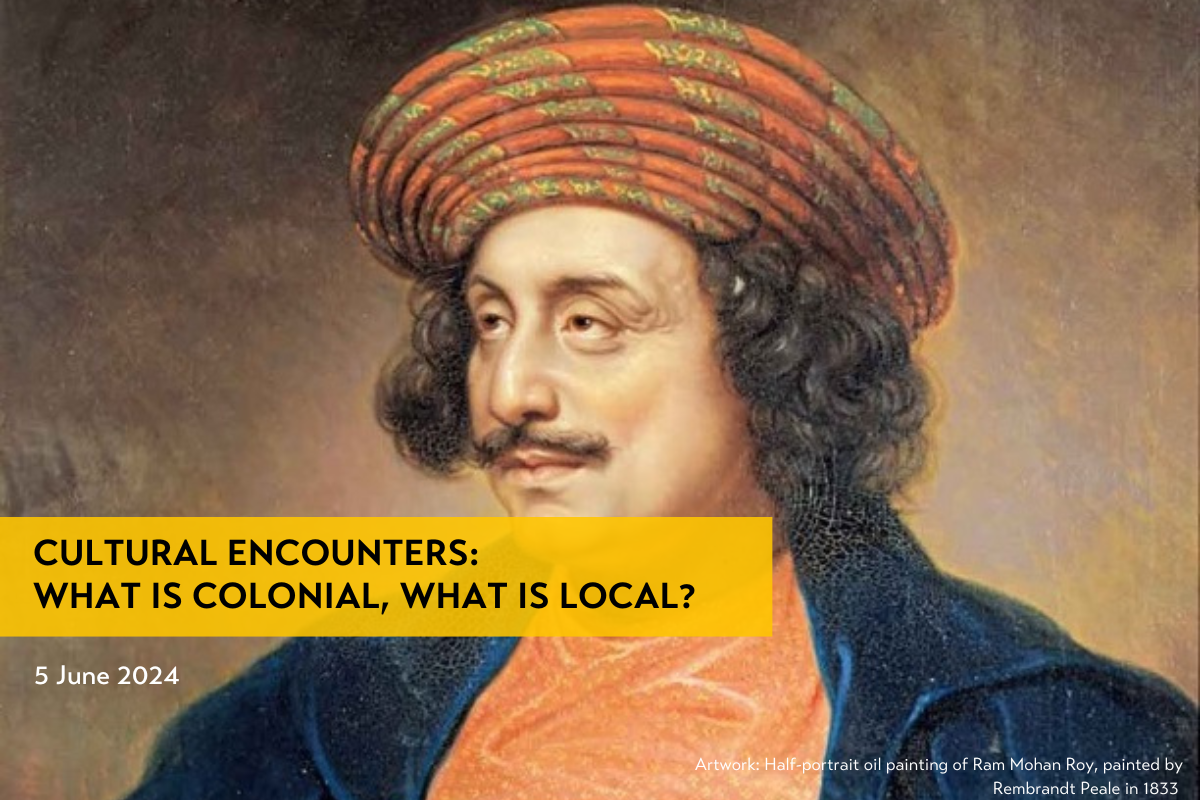Cultural Encounters: What is Colonial, What is Local?
VIEW EVENT DETAILSWednesday, 5 June 2024, 6:00 pm

Thomas Babington Macaulay, member of the Governor-General's council of India in 1835, famously said that all the literature of India and Arabia were not worth one single shelf of English literature. Given the extent, scale, and all-pervasiveness of colonialism in South Asia’s past, by European powers including the British, Dutch, and Portuguese, it is easy to think that all modern culture in South Asia owes itself to colonialism, with little alternative. Yet, as theorists like Michel Foucault have established, power, including colonial power, takes the form of knowledge. It creates a system in which although several other opinions and perspectives exist – and they do exist – one is louder and more visible, because it is more powerful. Colonial interactions with ‘local’ populations were two-way, whether in the form of language, politics, employment, or marriage, making the colonial ‘local,’ and the local ‘colonial,’ in more complex ways than simply a one-to-one exchange. Homi Bhabha has theorised that culture is created in the ‘third space,’ between one more dominant, powerful culture and one oppressed one. Being as deep a part of the Empire as Indians and South Asians were – in their civil services, their armies, their plantations and their homes – the ‘third space’ was where the ‘colonial’ and ‘local’ were both defined.
As we explore cultural history in South Asia, we want to begin by asking the difficult question: what is ‘colonial,’ what is ‘local’? Can those two clearly be defined? What are various forms of resistance, interaction, and knowledge exchange, and today, how can we look back on a more complex history than we have been given to understand?
This is the first session of Cultural Encounters: South Asian History in the 'Third Space,' this year's edition of our annual summer learning series, taking place virtually over June and July. Over four sessions and with panels of experts, we will explore the ways in which cultural similarities, hybridity, and interaction have shaped South Asia.The programmes focus on the colonial vs. local; food histories; religious histories; and histories of freedom. For more, visit this link.
OUTREACH PARTNERS




